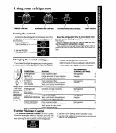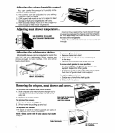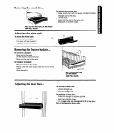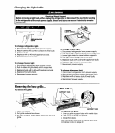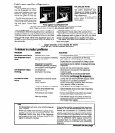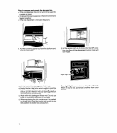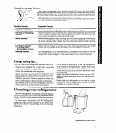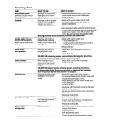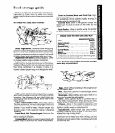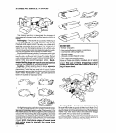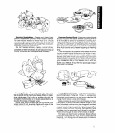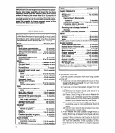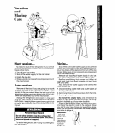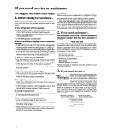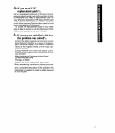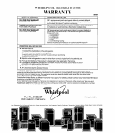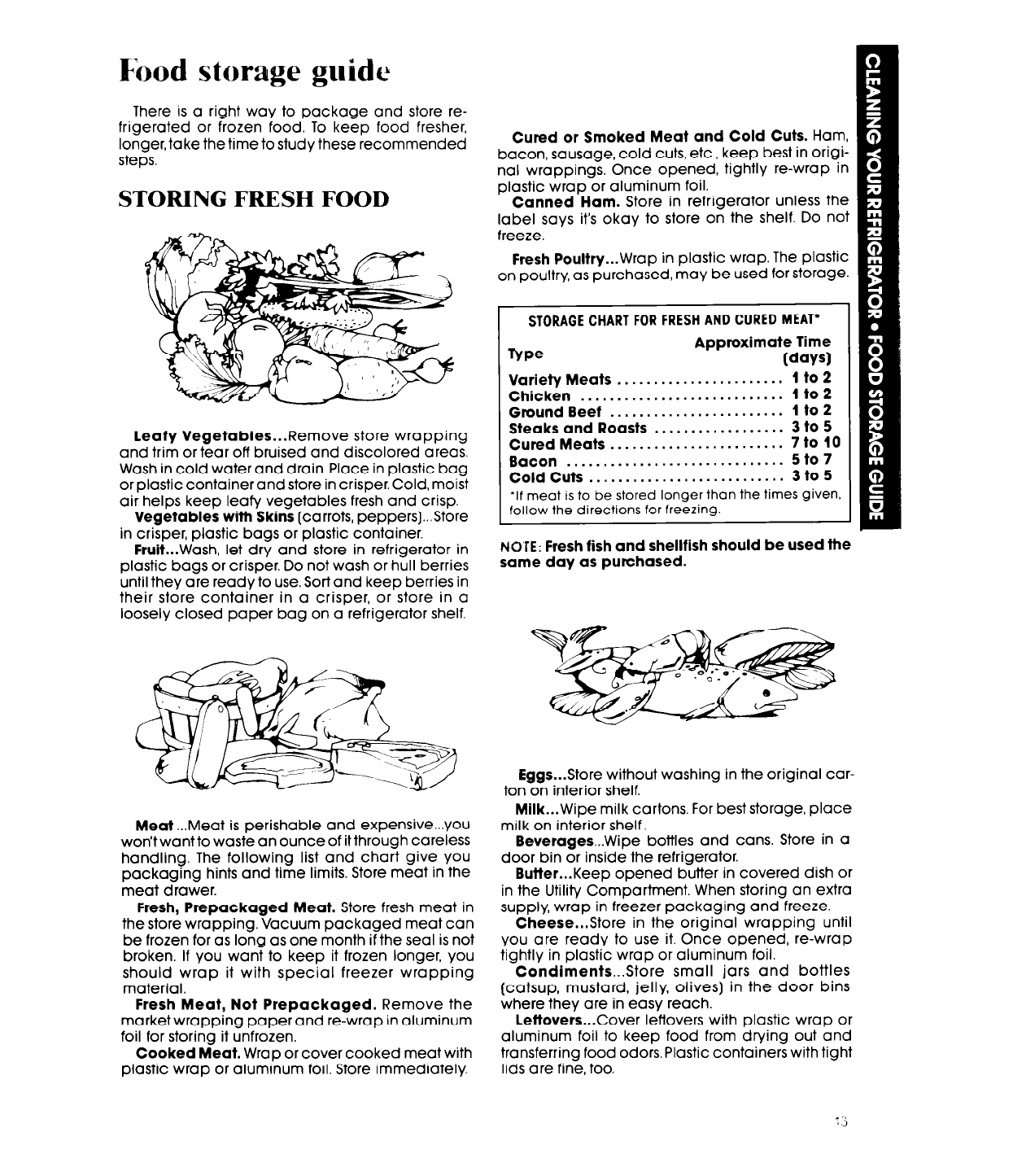
There is a right way to package and store re-
frigerated or frozen food. To keep food fresher,
longer, take the time to study these recommended
steps.
STORING FRESH FOOD
Leafy Vegetables...Remove store wrapping
and trim or tear off bruised and discolored areas.
Wash in cold water and drain. Place in plastic bag
or plastic container and store in crisper. Cold, moist
air helps keep leafy vegetables fresh and crisp.
Vegetables with Skins (carrots, peppers)...Store
in crisper, plastic bags or plastic container.
Fruit...Wash, let dry and store in refrigerator in
plastic bags or crisper. Do not wash or hull berries
until they are ready to use. Sort and keep berries in
their store container in a crisper, or store in a
loosely closed paper bag on a refrigerator shelf.
Meat . ..Meat is perishable and expensive...you
won’t wantto waste an ounce of it through careless
handling. The following list and chart give you
packaging hints and time limits. Store meat in the
meat drawer.
Fresh, Prepackaged Meat. Store fresh meat in
the store wrapping. Vacuum packaged meat can
be frozen for as long as one month if the seal is not
broken. If you want to keep it frozen longer, you
should wrap it with special freezer wrapping
material.
Fresh Meat, Not Prepackaged. Remove the
market wrapping paper and re-wrap in aluminum
foil for storing it unfrozen.
Cooked Meat. Wrap or cover cooked meat with
plastic wrap or aluminum foil. Store immediately.
Cured or Smoked Meat and Cold Cuts. Ham,
bacon, sausage, cold cuts, etc., keep best in origi-
nal wrappings. Once opened, tightly re-wrap in
plastic wrap or aluminum foil.
Canned Ham. Store in refrigerator unless the
label says it’s okay to store on the shelf. Do not
freeze.
Fresh Poultry...Wrap in plastic wrap. The plastic
on poultry, as purchased, may be used for storage.
STORAGE CHART FOR FRESH AND CURED MEAT’
rVpe
Approximate Time
(days)
Variety Meats . . . . . . . . . . . . . . . . . . . . . . ,
1 to 2
Chicken
. . . . . . . . . . . . . . . . . . . . . . . . . . . .
1 to 2
Ground Beef . . . . . . . . . . . . . . . . . . . . . . . . 1 to 2
Steaks and Roasts . . . . . . . . . . . . . . . . . . 3 to 5
Cured Meats . . . . . . . . . . . . . . . . . . . . . . . . 7 to 10
Bacon . . . . . . . . . . . . . . . . . . . . . . . . . . . . . . 5to7
Cold Cuts
. . . . . . . . . . . . . . . . . . . . . . . . . . .
3 to 5
*If
meat is to be stored longer than the times given,
follow the directions
for freezing.
NO’IE: Fresh fish and shellfish should be used the
same day as purchased.
Eggs...Store without washing in the original car-
ton on interior shelf.
Milk...Wipe milk cartons. For best storage, place
milk on interior shelf.
Beverages...Wipe bottles and cans. Store in a
door bin or inside the refrigerator.
Butter...Keep opened butter in covered dish or
in the Utility Compartment. When storing an extra
supply, wrap in freezer packaging and freeze.
Cheese...Store in the original wrapping until
you are ready to use it. Once opened, re-wrap
tightly in plastic wrap or aluminum foil.
Condiments...Store small jars and bottles
(catsup, mustard, jelly, olives) in the door bins
where they are in easy reach.
Leftovers...Cover leftovers with plastic wrap or
aluminum foil to keep food from drying out and
transferring food odors. Plastic containers with tight
lids are fine, too.



